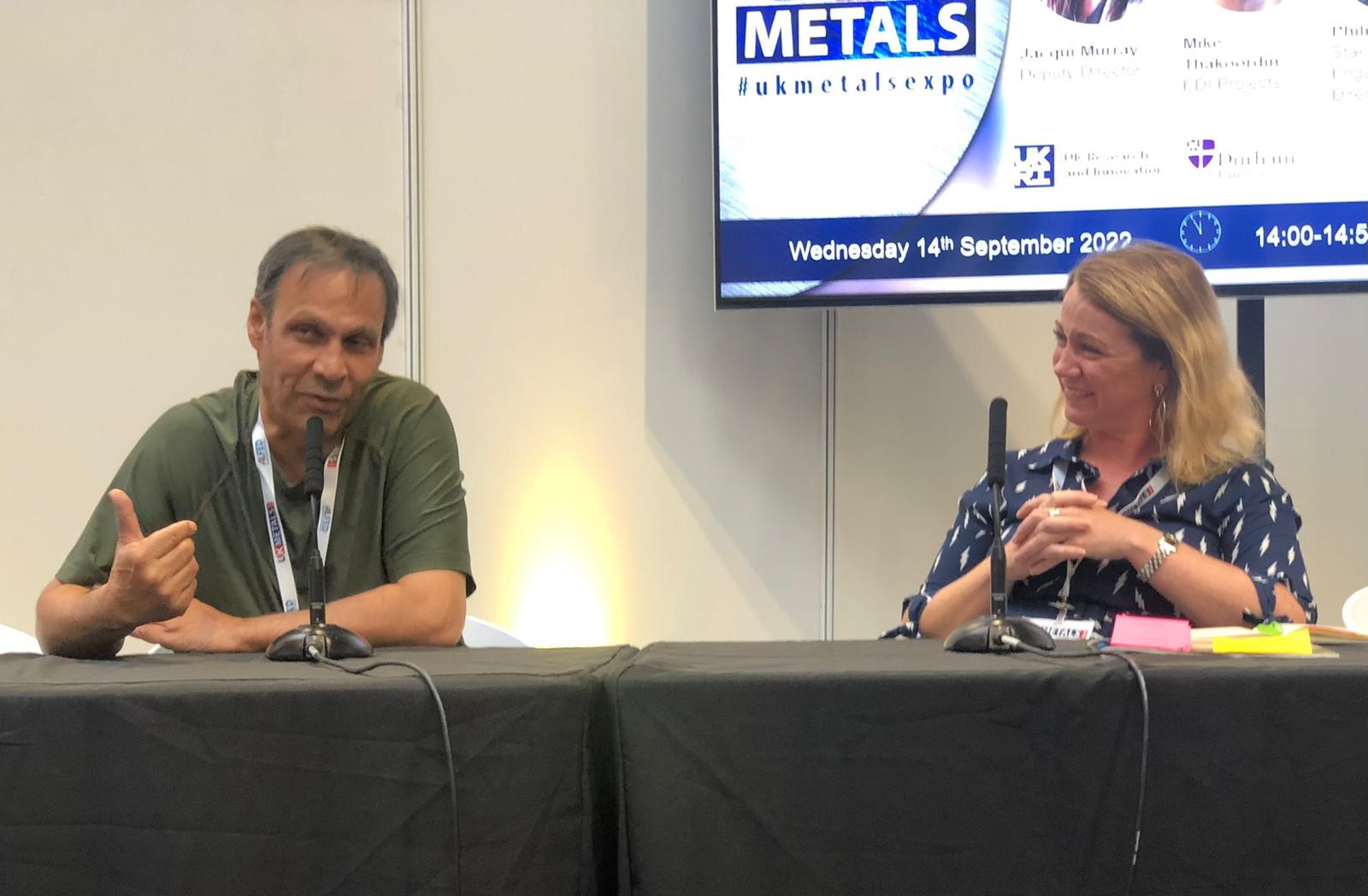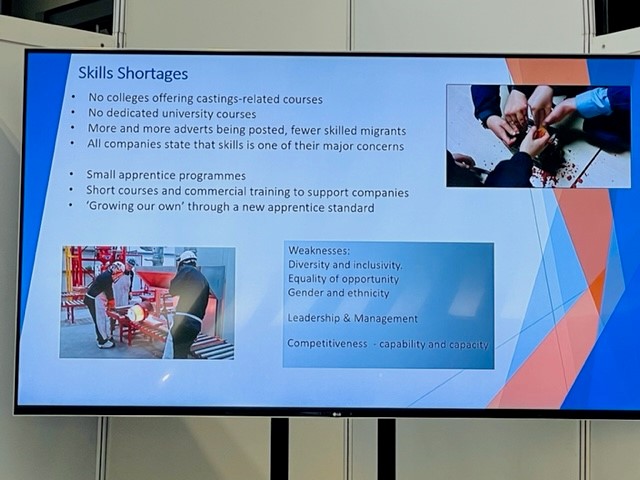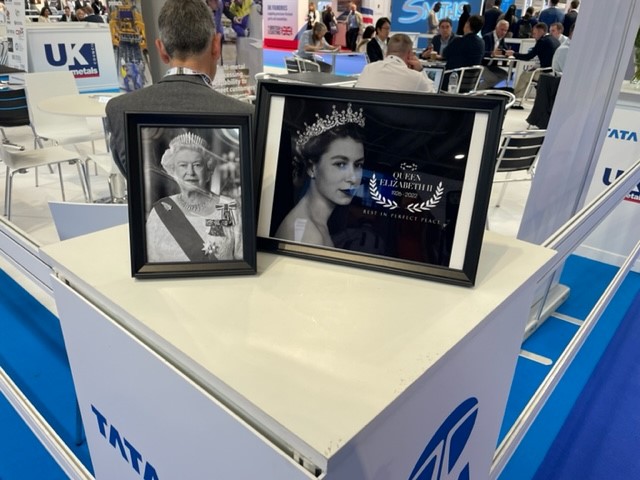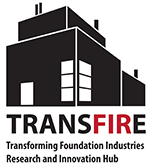The UK Metal EXPO 2022 UK Metals Expo | 14-15 September 2022 | NEC was held in Birmingham a few days after the sad passing of Her Majesty Queen Elizabeth II. The expo was the first time the entire sector was both represented and brought together entirely at the NEC, Birmingham; from primary metal manufacture, supply chain management, processing metals, fabrication, surface coatings and recycling along with UKRI, BEIS, industry experts, leading vendors, innovators and academic researchers Jo Stansfield, Mike Thakoordin and I, EDI – Transfire (transfire-hub.org) spent most of the day speaking to exhibitors and attending talks at the Skills, Training & Strategy Theatre, which had an overarching agenda on: ‘Workforce of the Future – The need for green skills, digital skills & attracting talent’.
At the ‘Future skills, upskilling and reskilling: Lifelong learning in the metal sector’ talk, we listened to the UK Metal Council panel who spoke about the need to attract 2300 graduates, 9200 apprentices and technicians to the metal industry annually. They described the struggle to retain apprentices, because as soon as they are fully trained, they move on to other industries. Additionally, they highlighted the need for the industry to retain existing employees, and training / upskilling new recruits to acquire the specific skills required for the future. Jo asked the panellists how skills are transferred from the older to younger employees and how existing skills are being impacted by AI, innovation and digitalisation. The panellists agreed that the industry is facing complex challenges and emphasised that a lot of learning is needed to keep up. There was a recommendation to utilise highly skilled employees approaching retirement, to be retained to deliver training to new recruits, thus safeguarding knowledge that would otherwise be lost due to retirement.
At both the ‘Strategic developments in the apprenticeships & the training landscape’ and the ‘Best practice in apprenticeships & recruitment of young people’ talks, the emphasis was on specifically recruiting young people and graduates. Some attendees emphasised that recruitment is challenging, due to the metal industry being perceived as a ‘dead, dirty industry’ and that people don’t know much about the industry, or the available opportunities. Changing mindsets particularly young mindsets, that the industry is attractive is imperative, as is changing the education curriculum to adapt to future skills. My own belief is that the industry can look beyond only attracting young people or graduates but also tap into the ‘wasted talent’ of migrants, who are otherwise unemployed, or stuck working in unfulfilling, low paying jobs or those that don’t match their skills. They could be upskilled or trained to work in the metal and other foundation industries. As the UK has no upper age limit for apprenticeships, this is something companies could utilise to attract workers from unrepresented diversity strands. It would also help them embed diverse and inclusive practices.
In our discussions, we spoke to many firms about EDI. We learnt that many organisations lack insight of how to attract more diverse recruits, whilst others have only so far managed to focus on attracting more women to their organisations. The challenge is that EDI can be perceived as ‘reverse discrimination’, undermining the ability to highlight its importance. Some admitted for the need to be better at offering equality of opportunity and that they could do better at EDI practices.
TransFIRe’s Mike Thakoordin was a panellist with Philippa Oldham (Advanced Propulsion Centre APC – Advanced Propulsion Centre (apcuk.co.uk) at the ‘Challenging recruitment stereotypes in diversity & inclusivity in the metals industry’ talk. They spoke about Foundation Industries lagging behind other sectors in EDI, organisation cultures lacking an EDI focus, recruitment, progressing and retaining employees. They explored wide-raging topics including racism, neurodiversity, stereotypes, flexibility in working hours, paternity leave, hybrid-WFH working, organisational culture and leadership. Concluding remarks included: embedding best practice needs to be reciprocally ‘top down’ from leadership, and ‘bottom up’ from employees. Overall, management need to buy-in, be involved and lead on inclusion, for it to be embedded. I really resonated with the “identities are not check boxes that populate organisations”.
Ciel Newton, TransFIRe EDI Project Manager





